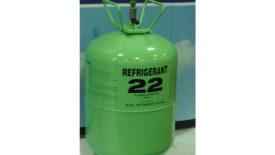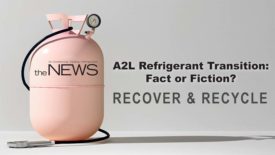Home » refrigerant reclamation
Articles Tagged with ''refrigerant reclamation''
FROSTlines
EPA Sees Uptick in HFC Reclamation
R-134a and R-410A lead the charge in significant year-over-year gains
Read More
How Contractors Can Safely Recover and Recycle A2L Refrigerants
A2L Refrigerant Transition: Fact or Fiction? Episode 1
Read More
Copyright ©2025. All Rights Reserved BNP Media.
Design, CMS, Hosting & Web Development :: ePublishing











